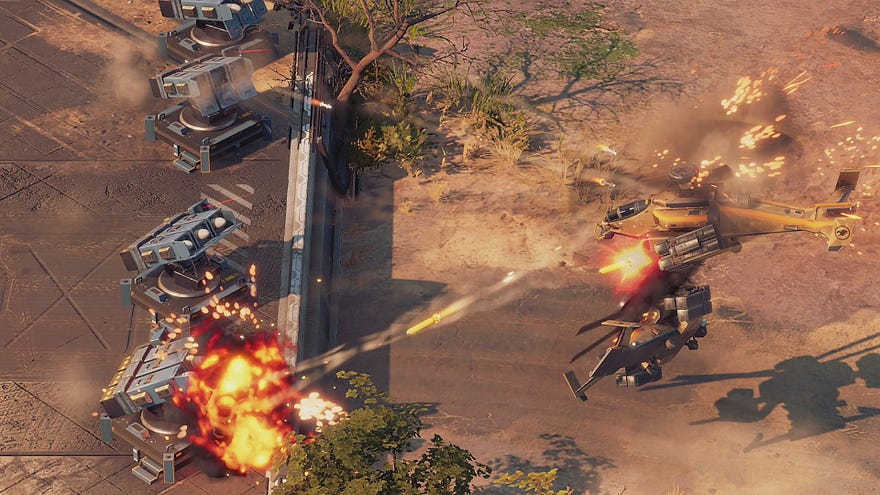Crossfire: Legion aims to fill the gap left by Starcraft and C&C: Red Alert
"Streamlining will allow players cognitive capacity to focus on combat," say devs
Age of Empires IV. WarCraft III: Reforged. Company of Heroes 3. The team at Blackbird Interactive has watched the recent return of the classic RTS games with interest - vested interest, in fact. Tasked by Korean developer Smilegate with transposing their Counter-Strike-style shooter Crossfire to the strategy genre, Blackbird believes it has identified a hole yet to be filled. A nostalgic need to be catered to.
“I argue that in the recent resurgence, we haven’t yet come across an RTS game that offers players an experience comparable to StarCraft or Red Alert,” says game designer Maurice Grela. “We’re hoping to fulfill that gap.”
What does that mean for Crossfire: Legion? Units that burn rubber. Simple build queues, and harvesters that can be left largely to their own devices. “We believe that streamlining the building experience will allow players more cognitive capacity to focus on the combat loop,” Grela says. The designer has a background in the FPS genre, which reflects the snappy pace of Legion - a game of feints and fast retaliation between distinct factions.
“Global Risk provides a familiar, comparatively simple army-building strategy,” Grela continues. “Combined arms, with an emphasis on quickly reinforcing fallen units. Black List provides sets of mechanics that allow them to ambush, outflank and limit the combat efficacy of their opponents.”
Blackbird knows what they're talking about. Founded by key Relic staff, the developer is the current custodian of the Homeworld series, and is bringing “almost two decades of tested knowledge and lessons” to bear on Legion. “Many of the designers, and the lead of Crossfire: Legion, are avid wargamers,” Grela says. “Not only does the studio have a strong RTS knowledge base, but it’s also well versed in analogue strategy.”
For some team members, Legion is a chance to recreate and then refine on a nostalgia formula. For others, it’s an opportunity to innovate in a genre that has been neglected by the industry at large. Grela promises modernisations across Legion’s interface, mechanics and game systems.
You might remember Blackbird as the maker of Hardspace: Shipbreaker, a game that channels the eerie beauty of Homeworld in aid of selling a very specific fantasy - a blue-collar salvaging job in space. Grela says we can expect similarly dense and atmospheric worldbuilding from Legion’s single-player campaign and level design - though he notes that Blackbird’s story won’t tie into the shooter Remedy is also building in the Crossfire universe with CrossfireX.
Whatever world Legion winds up building, it’ll be very different in tone to the glacial terror and economic commentary of Shipbreaker. Grela describes the Crossfire universe as “shlocky” - a setting that plays up its counter-terrorism premise for dramatic effect. Based on the little I’ve played, speed and accessibility appear to have been prioritised over spectacle and aesthetic novelty. Multiplayer is a clear focus, with Blackbird targeting hardware specs that should suit the majority of PCs found in internet cafés.
“After studying several games that attempted to branch into esports, we’ll begin by cultivating a competitive scene for the game before we commit to anything larger in scope,” Grela says. It’s an approach that suggests not so much a lack of commitment, as an intent to build strong community roots gradually. With Crossfire already pulling in players in the hundreds of millions, you can expect that Blackbird and Smilegate’s ambitions are large indeed.


